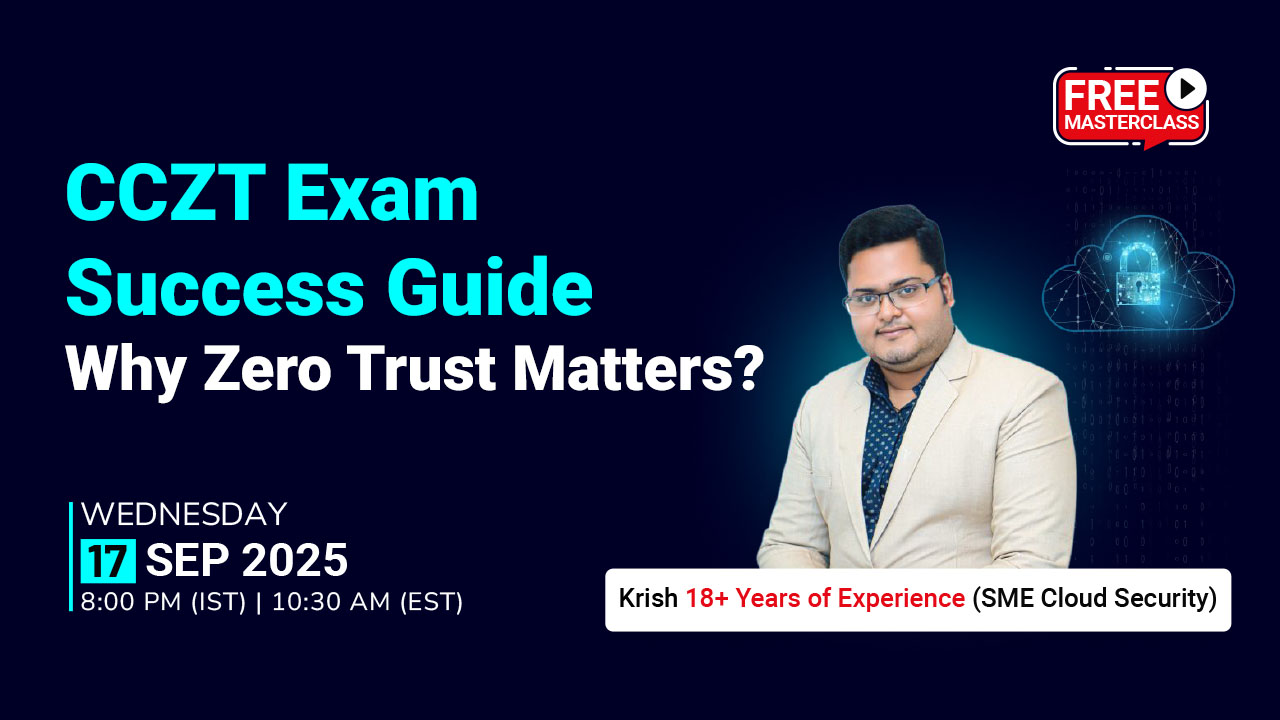Top Professional Scrum Master Interview Questions That You Should Know
Scrum is a well-known Agile framework that combines the best of Agile principles. Scrum has been widely adopted and used by several businesses around the world as a result of this. It has surged the demands for professionals who can help implement the Scrum framework in organizations. An essential part of the Scrum Team is the Scrum Master. The Scrum Master is the person who assists other team members in comprehending Scrum theory, practices, regulations, and values.

To nail your Scrum Master interview, all you will need is a better awareness of the Scrum Master’s job, Agile practices, and the concepts that the Scrum framework reflects. Here are some Professional Scrum Master interview questions and answers which will assist you in preparing for your interview and gaining confidence in your ability to ace it.
Question 1: What are Scrum’s three pillars, and why are they so important?
Answer: The three pillars of Scrum are:
- Transparency
- Inspection
- Adaptation
Scrum is based on these pillars.
Question 2: What is the role of a Scrum Master in Scrum?
Answer: Scrum Master is the key member of the Scrum Team. The Scrum Master helps facilitate Scrum to a bigger team by ensuring that the Scrum framework is followed. They are dedicated to the Scrum values and practices, but they should also be adaptable and open to chances for the team to improve their workflow.
Question 3: What are the primary Scrum framework artifacts?
Answer: The primary artifacts of the Scrum framework are:
- Product Backlog
- Sprint Backlog
- Product Increments
Question 4: What do you mean when you say Scrum Sprint? How long will it last?
Answer: A Scrum Sprint is a condensed period during which a Scrum Team completes a specific amount of work. It can span anywhere from one to four weeks. The duration of a Scrum Sprint is determined by the project’s size and the team working on it. A Sprint lasts an average of 2.4 weeks, while a Scrum project lasts an average of 11.6 weeks.
Question 5: What occurs during Daily Stand-up sessions?
Answer: The goal of a Daily Stand-up is for the team to get together for a status check to ensure everyone is on the same page and has insight into what is going on, both good and bad. It is organized and guided by the Scrum Master. The Daily Scrum has a time limit of 15 minutes. Generally, three things are discussed:
- What did you do yesterday?
- What are your plans for today?
- What is preventing you from making progress?
Question 6: What exactly is a “Scrum of Scrums”?
Answer: Scrum of Scrums is a scalable, Agile technique for connecting several teams that must collaborate to produce complex solutions. The goal is to coordinate smaller, self-contained teams.
Question 7: What are the five Scrum events?
Answer: The five important events in Scrum are:
- Sprint Planning
- Daily Scrum
- Sprint Review
- Sprint Retrospective
- The Sprint
Question 8: What are the three Scrum roles?
Answer: Scrum has the following three roles:
- Product Owner
- Scrum Master
- Development Team Members
Question 9: What is the role of a Product Owner?
Answer: The Product Owner is a member of the Agile Team responsible for defining Stories and prioritizing the team backlog to streamline product execution while maintaining the conceptual and technical integrity of the team’s features or components. The following are the roles of Product Owner:
- They define the vision
- They manage the Product Backlog
- They prioritize the needs of the stakeholder
- They oversee development stages
- They are the primary link between stakeholders and teams, as well as the primary communicator
- At each iteration, they assess the product’s progress
Question 10: What is the role of the Scrum Master in the organization?
Answer: These are some of the roles of the Scrum Master:
- They ensure that team members have received adequate training and are familiar with Agile processes.
- They conduct stand-up meetings every day.
- They use the information acquired from the daily stand-up meetings to assist the Product Owner to refine and maintain the Product Backlog.
- They are on the lookout for any obstacles and distractions.
- They educate people on Scrum’s practices and values.
Question 11: What are the essential tools in a Scrum project?
Answer: A good Scrum tool will clearly show who is working on what and how far they have progressed.
Some of them are:
- Jira
- Scrumwise
- QuickScrum
- VivifyScrum
- ScrumDo
- ClickUp
- Zepel
- Targetprocess
Question 12: What is the meaning of empiricism?
Answer: Working in a fact-based, experience-based, and evidence-based manner is what empiricism entails. Scrum is an empirical process that measures progress based on real-world observations rather than artificial goals. To achieve business and organizational agility, Scrum also emphasizes a transformation in mindset and culture.
Question 13: What are some of the disadvantages of using Scrum?
Answer: Although Scrum can assist teams to complete project deliverables in a timely and effective manner, there are several drawbacks of using Scrum. Some of them are:
- Adopting the Scrum framework in a large team might be difficult
- Due to the lack of a defined final date in Scrum, scope creep is common
- If team members are not committed or cooperative, there is a reasonable probability the project will fail
- Team members can become irritated by daily meetings
- Quality is hard to achieve unless the team goes through a rigorous testing process
Question 14: What exactly do you mean when you say “scope creep”? What can you do to keep it from happening?
Answer: Scope creep occurs when a project’s scope expands beyond its original goals while it’s still in process. These changes have an impact on the project’s schedule, budget, costs, and resource allocation, and they may jeopardize the achievement of milestones and objectives.
You can look at the following tips to prevent scope creep from happening:
- Create a list of the project’s requirements
- Set up change management procedures
- Make a detailed project schedule
- Stakeholders should be consulted about the project’s scope
- Members of the project team should be engaged
Question 15: What events require the presence of the Product Owner, Scrum Master, and Developers?
Answer: The Product Owner and Scrum Master must be present in Sprint itself, Sprint Planning, Sprint Review, and Sprint Retrospective. The Developers must be present in Sprint itself, the Daily Scrum, Sprint Planning, Sprint Review, and Sprint Retrospective.
Question 16: What are the most common Scrum project risks?
Answer: Some of the risks in Scrum projects are:
- Budget risks
- Scope creep risk
- Agile is not appropriate for every project
- Failure to adhere to Agile principles
- There is less predictability
- Time risk
Question 17: What is the Sprint Review’s purpose?
Answer: The Sprint Review’s goal is to examine Sprint’s results and recommend future changes. The Scrum Team presents their work to crucial stakeholders and discusses their progress towards the product goal.
Question 18: How can a Scrum Team deal with internal conflict?
Answer: Scrum Teams can deal with internal conflicts with these approaches:
- The root source of the problem must be recognized and addressed.
- It is necessary to prove complete ownership.
- Make an effort to resolve the conflict.
- Emphasize priority areas that are complementary to the project.
- A common understanding must be formed to guide the team.
- Continuous monitoring and total visibility must be provided.
Question 19: When is it appropriate for a Scrum Master to refrain from acting as a facilitator?
Answer: A Scrum Master frequently serves as a facilitator, bringing the team together to achieve the best results possible. A Scrum Master is not required to participate as the facilitator in workshops focused on Scrum methods. A Scrum Master, on the other hand, may serve as a facilitator in product development workshops.
Question 20: What is Backlog Refinement, and how does it work?
Answer: Backlog Refinement occurs when the Product Owner and some, or all, of the rest of the team evaluate Backlog items to ensure that the Backlog contains the necessary products, that they are prioritized, and that the products at the top of the Backlog are ready for delivery. Backlog Refinement produces a well-organized, well-understood Backlog. There is no time frame for this.
How can InfosecTrain help you?
At InfosecTrain, we provide a Professional Scrum Master (PSM) certification training course for Scrum Master, which will assist you in gaining a comprehensive knowledge of the Scrum and the many duties played by a Scrum Master. Understand the Scrum and Agile movement principles with our qualified instructors through a blend of exercises and theory to help you ace the interview on the first go. Enroll today to take the next step towards a lucrative career.







 1800-843-7890 (India)
1800-843-7890 (India)